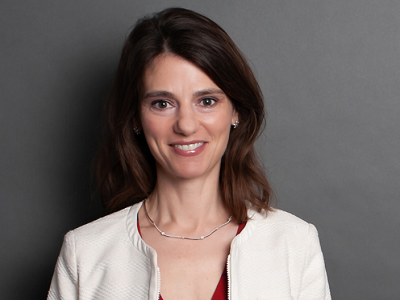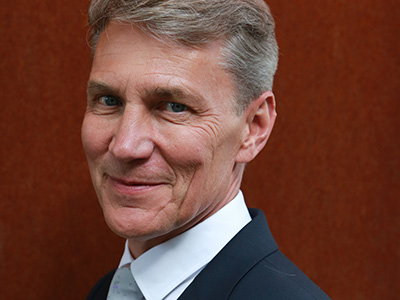EPO upholds three Broad Institute patents for next generation CRISPR-Cas12a
The EPO Opposition Division has upheld three patents which cover a new generation of CRISPR technology, known as CRISPR-Cas12a. The gene-sequence editing method has made waves in recent years, with a spate of patent proceedings at patent offices and at national courts concerning its predecessor, CRISPR-Cas9. Both technologies are pioneering in their many and varied potential applications.
18 April 2023 by Amy Sandys
The EPO Opposition Division has upheld three Broad Institute patents covering CRISPR-Cas12a technology, after five different opponents attempted to invalidate the patents across two sets of proceedings. Between 28 and 31 March 2023, the division heard proceedings against EP 3 502 253 and EP 3 310 917 together over two-and-a-half days. It heard EP 3 470 519 over the remaining one-and-a-half days. Previously, the EPO has frequently revoked patents in proceedings concerning CRISPR-Cas9.
The five opponents, which varied across the two hearings were all represented by straw men, challenged the three patents based on added subject matter, lack of enablement, lack of novelty, and lack of inventive step.
However, the opposition division rejected the arguments and maintained EP 253 and EP 917 for method, and EP 519 for composition. While the European Patent Office is yet to release its written decisions, JUVE Patent is not aware of whether the opponents will appeal.
CRISPR-Cas12a, a new generation
The patents all cover a novel RNA-guided endonuclease known as CRISPR-Cas12a technology, which biotechnology companies are harnessing as an alternative genome editing tool to the original CRISPR-Cas9 enzyme. Originally known as CRISPR-Cpf1, the renamed Cas12a technology is smaller than its Cas9 predecessor which, while undoubtedly effective in DNA editing, is also a very large protein.
Thus, its size has presented problems in delivery to the human body, especially with regard to its function of breaking the DNA strand at a specific point. In contrast, Cas12a can perform the same function but is much smaller, cleaving both DNA strands with one nuclease. It is also able to perform manifold genome editing, with one crRNA transcript targeting multiple locations in the genome. It leaves staggered cuts, rather than the blunt cuts left by CRISPR-Cas9.
Enabling diverse applications
Such is the success of the Cas12a development that some biotechnology companies, such as Novozymes, have already begun applying the technology. In late 2018, for example, Novozymes and Benson Hill entered into a research and commercial licence agreement. This enabled Novozymes to pursue genome innovation in the agri-food sector. According to JUVE Patent sources, it is likely that Novozymes was one of the opponents in this case, albeit appearing as a straw man.
In 2017, the Broad Institute announced that the EPO had granted the first patent for CRISPR-Cpf1, as it was then known, with Ann De Clercq and Liesbet Paemen of De Clerq & Partners representing the organisation. These proceedings, which concerned EP 3 009 511 B1, saw Pinsent Masons, Vossius & Partner, and Wächtershäuser & Hartz representing the opponents. In 2021, the EPO upheld EP 511 in amended form.

Jennifer Jones
However, the current proceedings are the first to concern the three patents’ specific portfolio. As yet, there are no parallel proceedings in the US, with Europe the first jurisdiction to cover CRISPR-Cas12a oppositions.
A European affair
The Broad Institute leaned on its usual advisors from the London office of Bird & Bird, led by partner Jennifer Jones. She has been instrumental in multiple CRISPR cases, for example representing the institute in complex EPO proceedings concerning priority before the Technical Boards of Appeal.
Once again, Jones is working alongside Dutch lawyer Koen Bijvank, of IP boutique Brinkhof. Bijvank, who is dual qualified as a patent litigator and patent attorney, handled the oral advocacy for the Broad Institute. Dutch patent boutique V.O. led with technical patent support for the two firms.
However, CRISPR proceedings at the EPO often involve multiple straw men, with the proceedings over CRISPR-Cas12a no different. In the first hearing concerning EP 253 and EP 917, the opponents were represented by UK patent attorney firms Potter Clarkson and Boult Wade Tennant, mixed IP firm Carpmaels & Ransford, and German patent attorney firm Maiwald. The latter firm, which is based in Munich, has acted for the Berkeley/CVC collaboration in previous CRISPR-related proceedings.
Multiple CRISPR oppositions

Martin Grund
In proceedings concerning EP 519, Maiwald was not party to the proceedings, with Grund IP led by name partner Martin Grund appearing as an additional opponent. Grund IP, based in Munich, has been involved in CRISPR opposition proceedings for several years, filing myriad oppositions against the Broad Institute.
In the present case, all firms acted as straw men. However, Martin Grund and Gabor Mester represented the firm as an opponent.
For the Broad Institute
Bird & Bird (London): Jennifer Jones (partner); associate: Mark Day
Brinkhof (Amsterdam): Koen Bijvank (partner, dual-qualified), associate: Alexander de Leeuw
Vereenigde Octrooibureaux (Utrecht): Tamara Elmore (partner, patent attorney)
For first opponent (straw man)
Potter Clarkson (Nottingham): Mark Didmon (partner); associate: Matthew Walsh (both patent attorneys)
For second opponent (straw man)
Boult Wade Tennant (Cambridge): James Legg (partner, patent attorney)
For third opponent (straw man)
Carpmaels & Ransford (London): Cameron Marshall (partner, patent attorney)
For fourth opponent (straw man)
Maiwald (Munich): Regina Neuefeind (partner); associate: Kerstin Wolff (both patent attorneys)
For Grund IP
Grund IP (Munich): Martin Grund, Gabor Mester (both partners, both patent attorneys)
European Patent Office, Opposition Division
Giovanni Macchia (first examiner); Mark-Peter Spindler (second examiner); Brian Routledge (chairman)